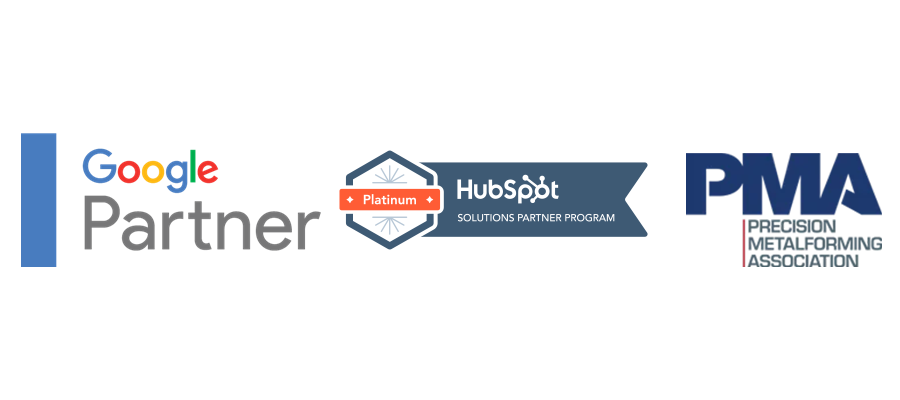A Guide to Digital Marketing Tools for Industrial Marketing
Understanding Industrial Marketing
In the era where digital initiatives are accelerating at record highs, the bedrock of the economy—industrial marketing—continues to operate under the radar, often passing unnoticed by the everyday consumer.
But professionals within this realm understand the weight it holds and the complexities it harbors.
So, what is industrial marketing?
Definition and Scope
Industrial marketing, also known as business-to-business (B2B) marketing, differs starkly from the more common business-to-consumer (B2C) marketing realm.
At its core, it’s the practice of marketing products and services from one business to another. These transactions typically have a mega price tag and involve goods such as machinery, materials, and software designed for companies, as opposed to individual consumers.
Differences between B2B and B2C Marketing
The line blurs slightly between B2B and B2C marketing when it comes to tactics and strategies that are commonly shared. But there are a bevy of differences which cannot be any more pronounced.
In B2C, the customer is king, but in B2B, the product reigns supreme.
While B2C marketing relies on emotional engagement and brand connections, industrial marketing, on the other hand, requires a laser-like focus on features, functionality, and the unique value proposition of the product.
While the B2C world churns out sales faster than you can say ‘buy one, get one free,’ B2B plays the long game. In industrial marketing, the stakeholders often dig deep into the data and specification sheets before signing off on a deal. Because of this, industrial marketers must have a good grasp of technical details and a capability to communicate effectively with highly knowledgeable buyers.
The extended journey in B2B transactions often leads to a more substantial and long-term relationship between companies, which makes impeccable service and trust immensely invaluable.
Challenges in Industrial Marketing
The terrain of industrial marketing is fraught with challenges. Here are some of them:
- Lengthy Sales Cycles: Decision-making within industrial sectors can often take considerable time due to extensive approval processes and significant investment considerations. This slowdown can impact your business momentum.
- Complex Approval Chains: Multiple layers of approvals can prolong decision-making. Each step in the chain may require presentations, adjustments, and reiterations, which adds complexity to the sales process.
- High Investment Thresholds: The significant financial commitment required for industrial solutions places extra pressure on decision-makers, making sales cycles more conservative and lengthier.
- Overly Niche Markets: Specializing in a too-specific niche may limit your market size and make it challenging to scale or shift when required.
- Ambitious Product Development: Innovating at a rapid pace or introducing new technologies can sometimes outpace your market’s readiness or capability to adopt. This leads to misalignment with market demands.
- Product Complexity: The very nature of industrial products often requires that your sales team not only understands but can expertly convey the technical nuances of your products to potential clients, which demands extensive training and knowledge.
Yet, with challenges come opportunities. The industrial market is currently witnessing an upswing powered by digital marketing tools that help businesses stay ahead. Strategies that once went up in flames are now firing on all cylinders. Reaching potential clients and converting them has also never been easier, thanks to the precision and efficiency of digital tools at our disposal.
Essential Digital Marketing Tools

Navigating the world of industrial marketing can feel like weaving through peak-hour traffic. Your schedule is packed, and it’s crucial that every move counts towards reaching your destination. Let’s fill your toolkit with everything you need to keep your strategy moving smoothly and your business goals firmly within reach.
Customer Relationship Management (CRM)
In the fast-paced environment of industrial marketing, CRM tools are there to help you turn every interaction into an opportunity for growth. Imagine having a system that remembers every customer’s preference, anticipates their needs, and keeps you two steps ahead at all times.
That’s the power of a robust CRM.
Salesforce and HubSpot are leaders in this space. Unlike manual tracking, these tools provide a streamlined process to nurture leads and build enduring relationships. With these tools, missing out on potential sales is a thing of the past.
Email Marketing
The digital world is ever-evolving, yet email marketing consistently proves its worth by delivering your message directly to your audience’s doorstep. Platforms like Mailchimp and Constant Cart enable you to draft, design, and dispatch emails that speak directly to your clients’ interests and needs
Email marketing is not just about keeping in touch–it’s about maintaining a dialogue that grows deeper with every exchange. It’s an invaluable tool for industrial marketers aiming to solidify their presence in their customers’ worlds by making sure that their brand’s voice is heard loud and clear amidst the daily noise.
Industrial Web Development
Web development, in the context of industrial marketing, has merits beyond maintaining a simple online presence. It’s the groundwork that supports your digital endeavors by commanding the attention of your audience.
Now, just because you’re well-versed in the nuts and bolts of your industry doesn’t mean the digital representation of your business should have a mechanical look and feel. Sure, you know the industrial scene back to front, sideways, and probably even in zero gravity, but the interwebs is another dimension.
Here, it’s not about flashy features or needless complexity. It’s about clean lines and easy-to-find information that helps your clients find their bearings quickly and effortlessly. That’s why your site should be nothing if not a bastion of functionality and clarity–any less, and your efforts would be found wanting.
And for the love of all things clickable, keep your content updates rolling! Industrial sectors evolve, and so should your digital footprint. Keeping content fresh means you’re continually handing off the newest and best of what you offer to your clientele. This way, you can assure them that you’re at the frontier of your field.
SEO and Advertising Tools for Industrial Web Development
The universal truth about the importance of SEO and advertising tools is unequivocally clear: They are the keystones of building a visible and engaging online presence. Let’s dive into how these vital tools can propel your industrial business forward, without making you feel like you’ve had to bite the bullet in terms of complexity or cost.
SEO
Venturing into the digital marketing wilderness without SEO tools is like trying to find your way through a mountain without a map. Sure, you might stumble upon your destination eventually, but not without a few unnecessary skirmishes. With the right SEO tools, such as SEMrush and Ahrefs, you can easily climb to the top of search engine results pages.
Let’s be clear: SEO for manufacturers isn’t a fleeting trend. It’s the bread and butter of online success, making sure that the time and energy you invest in your web development aren’t just a shot in the dark but a strategic play that drives traffic right to your doorstep. By emphasizing tailored SEO strategies, you can place your services directly in the sightline of those seeking what you offer.
Paid Advertising
While organic growth through SEO is invaluable, sometimes you need to make headway more quickly. This is where paid advertising platforms like Google Ads and LinkedIn Ads come into the picture.
PPC (Pay-Per-Click) and targeted ad campaigns are not about cutting corners; rather, they’re about reaching your audience exactly where they are. These platforms allow for finer control and targeting, so your message reaches those already in great spirits to engage with your services.
Any B2B industrial marketing agency would tell you that embracing PPC doesn’t necessarily have to cost an arm and a leg. With a strategic approach—focusing on targeted keywords and audiences pertinent to your industrial niche—you can achieve significant visibility and lead generation without succumbing to the vitriol of wasted ad spend.
Analytics and Reporting
So, you have the strategies and are ready to harness market trends? Great! But without analytics and reporting tools, you might just find yourself barking up the wrong tree and chasing after prospects that aren’t moving you forward through your sales funnel.
Data Analytics
Using data analytics means having the right data to guide your decisions. Tools like Google Analytics and Tableau can help you avoid adding fuel to the fire with misdirected efforts and instead cut some slack for strategies that genuinely propel you closer to your objectives. For businesses feeling snowed under in the data deluge, these tools offer a way out.
Analytics tools do more than just map where you’ve been. They illuminate potential paths forward and allow you to proceed with caution, armed with insights into what truly resonates with your audience. It gives you a clear map of where you are, where you need to be, and how you can possibly get there.
Reporting
Now, let’s talk about turning insights into action. Reporting tools, such as Looker Studio and Domo, guide you through the fog of daily operations. Think of creating marketing reports not as a chore, but as crafting a story—the narrative of your journey so far, complete with lessons learned and victories won.
These platforms are far from being a dime a dozen. They offer a structured way to review your performance, drumming up support for what works and providing a chance to recuse strategies that don’t. The beauty lies in their ability to make data accessible by transforming numbers and charts into actionable insights.
Integrating Digital Marketing Tools
Creating the perfect blend of digital marketing tools in the industrial sector often feels like a high-wire act. You may have experienced moments you thought you had it all figured out, only to realize there were still gaps you couldn’t bridge.
Stitching together a cohesive strategy from disparate tools can seem like a tall order, but it’s far from impossible.
The journey of integrating digital industrial marketing tools is filled with stunts we’ve all pulled in an attempt to find what works. It’s anybody’s guess how many trials and errors it takes to achieve seamless integration.
Yet, it’s crucial to ensure that every tool in your industrial marketing arsenal works in unison. A disjointed strategy leads to inefficiencies, missed opportunities, and, ultimately, falling behind in a competitive market. In our experience, integration can catapult your business and boost both visibility and engagement.
And let’s address the elephant in the room: automation. The thought of implementing marketing automation often brings visions of mega price tags and the need to spend up big. Rarely does it actually happen with the solutions we recommend. Platforms like Marketo and Pardot enable businesses of all sizes to enjoy the benefits of automation without breaking the bank.
These top marketing automation platforms don’t just send emails or post on social media on a schedule. They create an ecosystem where your industrial marketing efforts are synchronized in a timeline that you want, not when you’re scrambling to play catch-up. This focus ensures that no lead is left unattended, and no opportunity is swept under the carpet without follow-up. But if you want a laser-focused team that will help you integrate tools and develop a complete digital industrial marketing strategy for you, then look no further than our team at MFG Tribe.
Our expert team has years of experience in successfully integrating digital industrial marketing tools for businesses of all sizes. Schedule a consultation with us today.




